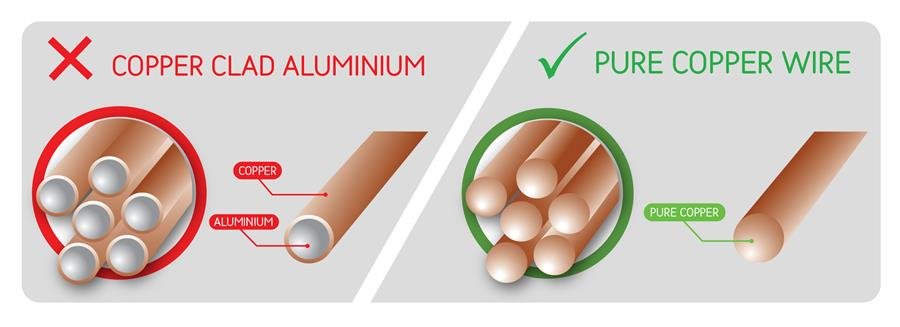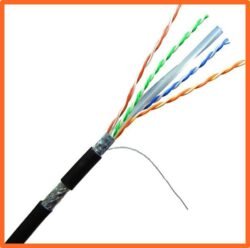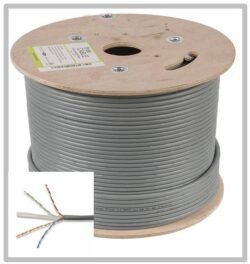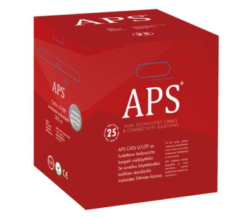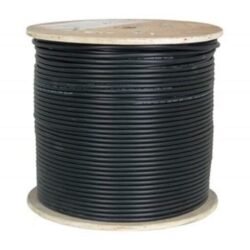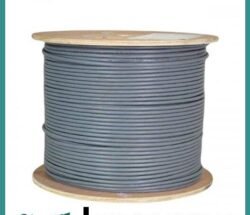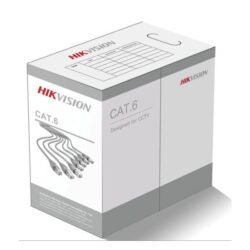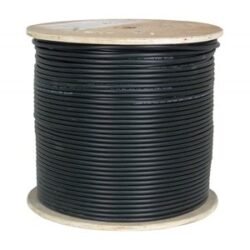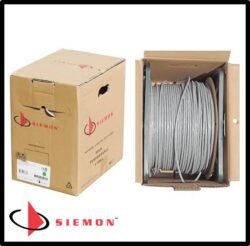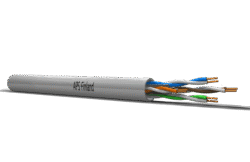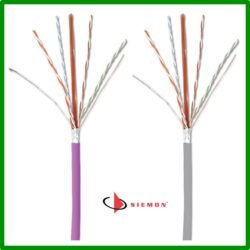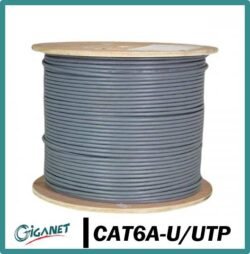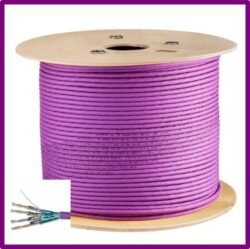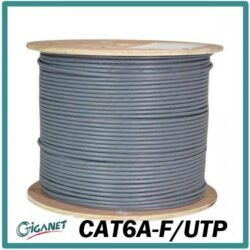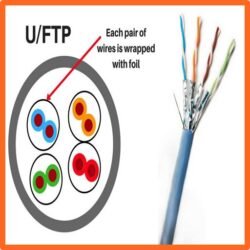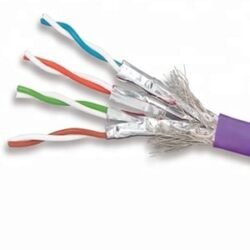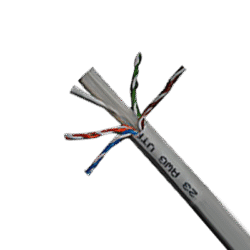Pure Copper vs. CCA Ethernet Cables
The choice between Copper Clad Aluminum (CCA) cables and pure copper ethernet cables in Kenya is critical for your network’s performance, reliability, and safety. CCA cables are a cheaper, cost-effective option for light, temporary use over short distances, while pure copper cables are the industry standard for reliable, high-performance networking in Kenya, and they are a strict requirement for Power over Ethernet (PoE) applications.
Which Ethernet Cable Should You Buy in Kenya?
For all professional, long-term, and mission-critical installations, always choose Pure Copper.
| Cable Type | Recommendation for Kenya | Distance / Speed | Key Local Brands & Products (Focus on Pure Copper) |
| Cat6 (1G) Pure Copper | Ideal for most standard office/home networks requiring reliable 1 Gigabit Ethernet speeds and PoE support. | 1Gbps up to 100 meters | Giganet Cat6 Pure Copper, Siemon Cat6, Easenet Cat6 (Pure Bare Copper). Look for 305m pure copper rolls in Nairobi, Mombasa, or Kisumu. |
| Cat6A (10G) Pure Copper | Necessary for high-performance networks like data centers in Kenya or for use with WiFi 6/6E access points requiring sustained 10 Gigabit speeds and high-power PoE. | 10Gbps up to 100 meters | Siemon Cat6A SFTP, Molex Cat6A, D-Link Cat 6A Pure Copper (Shielded is highly recommended). |
| CCA Cables (Any Category) | NOT Recommended for permanent or mission-critical installations in Kenya. The risks outweigh the lower initial cost. | Reliable only for very short runs (<50m) and NON-PoE applications. | RD-Com CCA, Mercury/CPK Cable UTP (CCA). Use with extreme caution for non-essential connections only. |
Pure Copper Ethernet Cables: The Professional Standard in Kenya
Pure copper ethernet cables use 100% copper conductors for optimal conductivity, durability, and safety. This is the trusted, industry-standard choice for professional network installations and is required by international building codes.
- Superior Conductivity & Range: Copper’s low electrical resistance ensures a strong, stable data signal over longer distances, supporting runs up to 100 meters (the standard for reliable Gigabit Ethernet speeds in Nairobi).
- Safety and PoE Support: Pure copper has much lower resistance than CCA, significantly reducing heat buildup when conducting electricity.4 This makes them safe and reliable for Power over Ethernet (PoE) applications, essential for powering IP cameras, VoIP phones, and WiFi access points common in Kenyan offices and homes.
- Durability and Longevity: More flexible and less brittle than CCA, pure copper cables withstand bending during installation and don’t oxidize easily at termination points, ensuring a long-lasting connection and reducing long-term maintenance costs for Kenyan businesses.
- Guaranteed Performance: These cables meet strict industry standards (TIA, UL, ETL), ensuring certified Cat6/Cat6A performance. CCA cables fail these certification tests for high-speed Ethernet applications.
CCA (Copper Clad Aluminum) Cables: The High-Risk Alternative
CCA cables have an aluminum core with a thin copper coating. While they are a cheaper and lighter alternative often sold in Nairobi IT shops, their performance and safety are significantly compromised, making them a false economy.
- Inferior Performance: Aluminum’s higher electrical resistance causes greater signal loss (attenuation) and interference (crosstalk). This results in slower, less reliable data speeds, especially over longer distances required for many Kenyan office networks.
- High-Risk for PoE & Fire Hazard: The high resistance of aluminum causes CCA cables to heat up significantly under load. In PoE applications, this can lead to overheating, voltage drops, device damage, and a significant fire hazard. CCA is not recommended for any PoE setup in Kenya.
- Physical Fragility: The aluminum core is brittle and can easily break or crack when bent, making installation difficult and leading to frustrating connection failures over time.14
- Oxidation Issues: Aluminum oxidizes quickly at termination points. Unlike conductive copper oxide, aluminum oxide is non-conductive, often causing complete connection failure.
Cat 6 cable Prices over view
Cat6a Cable Price Overview
FAQ for Ethernet cable in Kenya
Q1: Is CCA Ethernet Cable safe for Power over Ethernet (PoE) devices in Kenya?
A1 (Localized Answer): No, CCA is not safe for PoE. Due to its high electrical resistance, CCA cable heats up significantly under load, leading to voltage drops and a high risk of fire hazard, especially in higher-power PoE applications used for IP cameras or modern WiFi access points common in Kenyan setups. Always use pure copper for PoE.
Q2: What is the maximum reliable distance for Cat6 CCA cable compared to Pure Copper?
A2 (Technical Answer): Pure copper Cat6 supports reliable 1 Gigabit speeds up to the standard 100 meters. CCA cable performance degrades quickly due to high signal loss (attenuation) and is typically only reliable for short runs, generally less than 50 meters, before causing connectivity issues and slow speeds on Nairobi networks.
Q3: Which brands of pure copper Cat6 cable are recommended in Kenya?
A3 (Local Product Focus): The most trusted and reliable pure copper brands available for structured cabling in Kenya include Siemon, Giganet, D-Link, and Molex. When buying locally, always verify the product is 100% solid bare copper and not Copper Clad Aluminum (CCA) to guarantee certified performance.
Q4: Why are pure copper ethernet cables more expensive than CCA in the Kenyan market?
A4 (Value & Cost Answer): Pure copper is a commodity with a higher market value than aluminum. The initial higher cost of a pure copper Cat6 roll (305m) is an investment that guarantees long-term reliability, full PoE support, standards compliance, and safety, preventing the high maintenance and replacement costs associated with cheaper, low-performance CCA cables.


